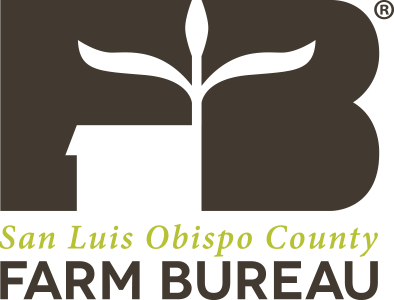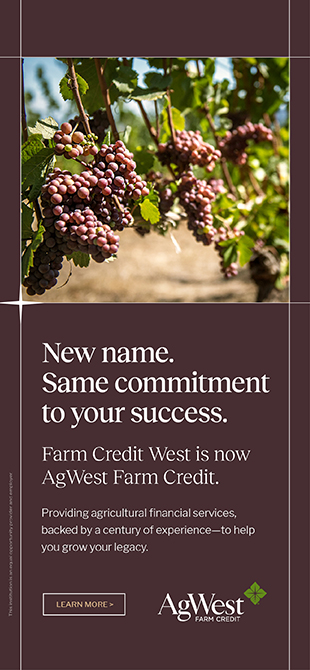 San Luis Obispo County Farm Bureau members participated in a conversation with Congressman Salud Carbajal and Congressman Collin Peterson (Ranking Member of the House Committee on Agriculture) from Minnesota, regarding the 2018 Farm Bill. The February 1st listening session was well attended by agriculturalists from San Luis Obispo and Santa Barbara Counties. Anna Negranti, SLO County Farm Bureau President, presented the opening remarks.
San Luis Obispo County Farm Bureau members participated in a conversation with Congressman Salud Carbajal and Congressman Collin Peterson (Ranking Member of the House Committee on Agriculture) from Minnesota, regarding the 2018 Farm Bill. The February 1st listening session was well attended by agriculturalists from San Luis Obispo and Santa Barbara Counties. Anna Negranti, SLO County Farm Bureau President, presented the opening remarks.
Regional concerns raised during the listening session included:
- Groundwater Sustainability & Drought: The new Farm Bill should allow greater flexibility to implement innovative solutions to local resource challenges.
- Water Quality: Maintaining the Environmental Quality Incentives Program (EQIP) and the Conservation Incentives Grant are solid ways of promoting water quality, as well as air and soil, on farmland.
- Global Trade: Increase funding for the Market Access Program (MAP) to give participants the opportunity to service more customers who seek to purchase an increasing volume and variety of products. Maintain the Foreign Market Development Program (FMD) to continue to promote California products overseas. And fully fund the Technical Assistance for Specialty Crops (TASC), which is necessary to assist the specialty crops industry deal with restrictive non-tariff sanitary and phytosanitary barriers.
- Livestock Disaster Programs: Maintain the Livestock Indemnity Payments; Livestock Forage Disaster Program; and Emergency Assistance for Livestock, Honey Bees, and Farm-Raised Fish.
- Tree Assistance Program: Continue financial assistance for orchards and nurseries damaged by natural disasters.
- Specialty Crops: Specialty Crop growers face unique challenges including production costs, the need for hands-on or other specialized harvesting methods, and limited research and development. There is a need for research funding for the grape industry and universities as well. We urge you to maintain or enhance the Specialty Crop Research Initiative.
- Program Eligibility Requirements: Income eligibility and maximum payment amounts need a mechanism to consider high costs of specialty crop production, especially in our region where costs are especially high.
- Invasive Pests, Disease, and Plant Detection, Exclusion, and Eradication: Maintain or expand support for plant Pest and Disease Management provisions.
- Animal and Plant Health Inspection Service (APHIS): Maintain funding through APHIS for the National Clean Plant Network.
- Horticulture: Maintain or increase funding for the Specialty Crop Block Grant (SCBG) program; Plant Pest and Disease Management and Disaster program; National Organic Certification Cost Share Program; and the National Organic Program (NOP). Federal law pertaining to labeling of flower products (where grown) should also be enforced.
There were also concerns regarding the farmworker housing shortage, immigration reform, easing Waters of the US (WOTUS) regulations and free trade agreements such as NAFTA.
An interesting point made by Congressman Peterson was the fact that after the bill is crafted, passed and signed into law and in the rule making process, rule makers (from the various agencies involved) in effect change the bill. He stated that often the rules differ from the language in the law.
Congressman Peterson also commented that he was not sure how to fix the farmworker shortage problem, but supports research and technology that would replace some farmworkers.



